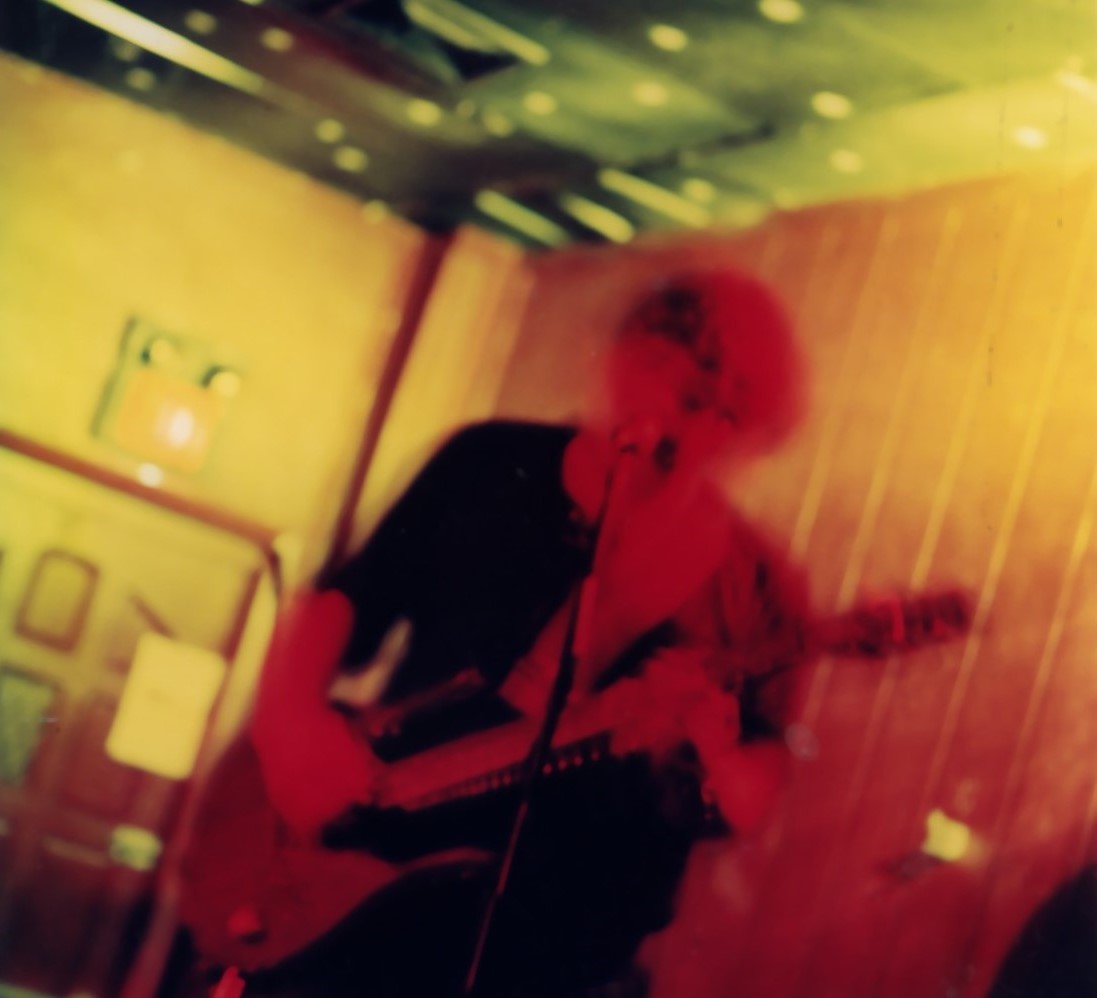John Terlesky | Interview | From The Original Sins, Suffacox to Brother JT & Beyond
John Terlesky is one of those rare figures who seems to exist on the fringe of rock, where DIY and creativity meet.
Whether fronting the primitive, energy-charged Suffacox, the experimental psych-blues of Brother JT, or the fuzz-laden Vibrolux, Terlesky’s sound has always been about rejecting conformity, and playing with that volatile edge. The man has lived in every corner of the underground scene, sharing stages with bands like Bardo Pond and Royal Trux… He’s the kind of musician who’s as comfortable turning out a one-off album like ‘Fuzzface’ as he is diving into the expansive, hallucinatory world of Brother JT. With his latest ‘Spirit Party’ reunion project, it’s clear: Terlesky’s still living for the moments that can’t be rehearsed…
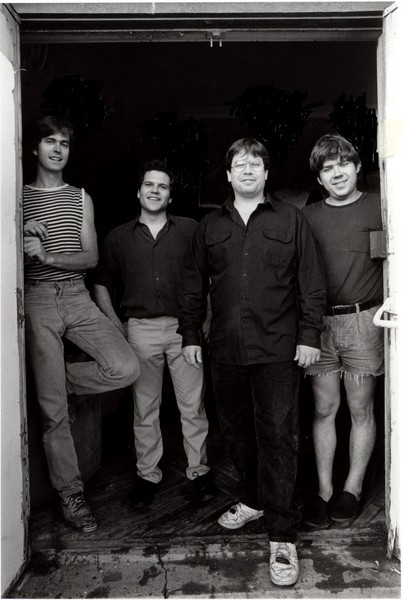
“It’s the exchange of energy that matters”
Would you like to share about your upbringing?
John Terlesky: I’m from Easton, Pa., which is about 2 hours north of Philadelphia and west of NYC. I think Dutch Schultz used to hang out there in the 1930s.
I remember my older brother playing Beatles albums when I was very young (I was born in 1962), which definitely set some kind of template for me. I thought they were the only band in the world. He had a little band and they occasionally practiced at the house, letting me sing ‘House of the Rising Sun’ with them for a laugh (I was about 8 years old). But it really stuck with me how natural performing seemed. Eventually, my brother showed me barre chording on guitar, which made learning simple tunes easy and helped me understand song structure. I later discovered punk rock—The Ramones, etc.—and it seemed like something I could do, possibly mostly as a means of social interaction. It still is.
Was there a certain scene you were part of? Maybe you had some favorite hangout places? Did you attend a lot of gigs back then?
I wasn’t part of anything until I was about 21. I saw a sign in a local record store looking for a guitarist to play 60s garage, which I was familiar with. I joined the band, called The Creatures, where I met the drummer and bassist who would later be in the Original Sins (Dave Ferrara and Ken Bussiere). I started writing songs for them, but also for myself because I found the genre limiting. Eventually, I split off to form the Original Sins, adding an organist I knew, Dan McKinney. A friend, Steve Morrow, had a brother, Glenn, who was starting a label in Hoboken (Bar None). He sent Glenn a demo tape, which he liked, and things went from there.
If we were to step into your teenage room, what kind of records, fanzines, posters, etc. would we find there?
I inherited my brother’s room, which had a poster of Quicksilver Messenger Service, which I left up, but that’s about it. I didn’t really start collecting records until I moved out, though I remember getting ‘A Nice Pair’ by Pink Floyd from the Listening Booth and enjoying it one sunny afternoon after school. The Syd Barrett stuff was very liberating—it was like making up the rules as he went along.
Was The Original Sins your very first band, or were you involved with any other bands?
My first band was Senseless Hate, where I played bass and did maybe 3 gigs. We played covers of Mentors, Angry Samoans, etc. Then came The Creatures, and then The Sins.
So The Creatures is where you recorded your first material? Tell us about those recordings.
We went to a place up in the Poconos and recorded maybe 15-20 songs. The ones I wrote were very formulaic to the genre, but I guess that’s how you learn. I reunited with them later around 2000, and we would play a lot of the same songs, and I’d think, “Gee, these still sort of work,” so I guess they served a purpose.
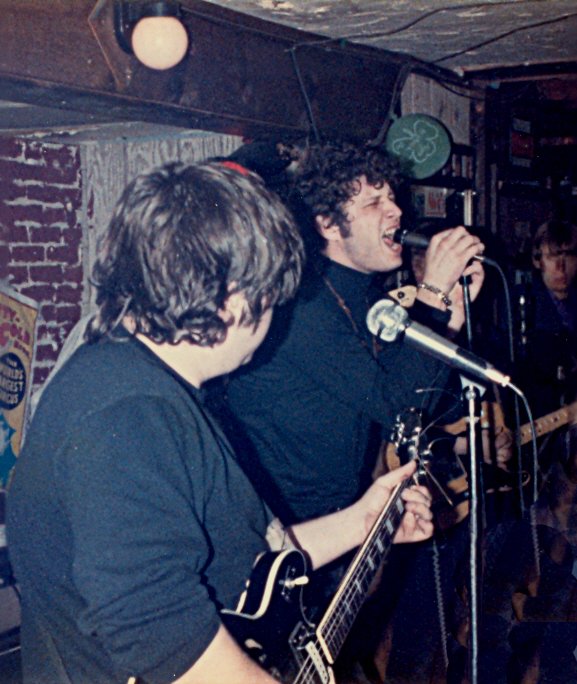
What are some of the most memorable moments recorded with The Original Sins? I’d love to hear how you recorded your first album and how that evolved over the years.
We recorded the first 3 albums at Water Music in Hoboken, the first one with Glenn Morrow producing. I just remember feeling in a hurry because studio time is expensive. They used 2-inch tape, which made a big difference in sound quality. My favorite recordings are ones I’ve done at home, where I could spend as much time as I wanted to get them right, but the sound is pretty lo-fi. Back then, it sounded better, but it was usually, “That’s a take, that’s good enough, let’s move on,” so there wasn’t much nuance to the recordings. And I was young and dumb. I’m older now.
What led to Suffacox?
I had been playing with guys from Philly after I started doing Brother JT as a side thing. One of them, Wayne Hamilton, asked if I’d like to play guitar in Suffacox (it was called Floating Dogs at the time), and I said sure. I enjoy being a side person because it’s not really your gig. You get to play, but it’s less pressure if the gig’s not good, because you’re not driving—it’s just along for the ride.
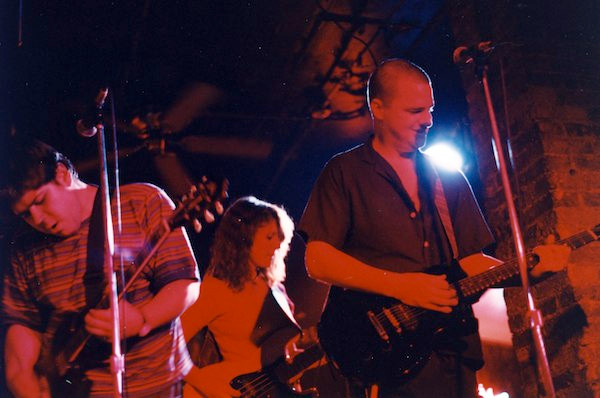
With Suffacox, there was this raw energy that really defined the sound. What was it like being in that band during its peak? How did you and the other members channel that energy into your music and performances?
As I said, I enjoyed being in Suffacox, also because I liked the people in the band, so it was a social thing. Wayne’s songs were fun to play, with a lot more room for noodling around than in The Sins. After Wayne passed in 2009, we got back together for a benefit (around 2016) with Mike Lenert from Caterpillar sitting in, and we’ve continued occasionally, largely, I think, because we enjoy each other’s company and, of course, playing the old songs.
Let’s talk about some of your standout tracks. Which song from either Suffacox or The Original Sins do you feel holds a special place in your heart, and why?
I always liked doing ‘Orgone Accumulator’ (by Hawkwind) with Suffacox because you never knew how long it would go or how to end it. It was pretty much determined by when the drummer, Lou, got tired. In freeform things like that, you learn stuff off the cuff that can be useful later.
The Sins actually played a show (around 1991) in Berlin with Hawkwind (well, we were on the top floor, they were on the bottom), and watching them was a real revelation. I think that inspired me to do a more freeform jamming thing like Brother JT. Possibly because if the song is only 2 chords, you can generally play it no matter how altered you are.
Collaborations often bring out new dimensions in an artist’s work. Have there been any particular musicians or producers you’ve worked with who had a significant impact on your music or your approach to recording?
I’ve been very lucky over the years to play with very good, professional-type musicians. Even if I wrote the words and the chords of the songs, they all made them successful live, and I’m very thankful. Particularly the drummers I’ve worked with: Dave Ferrara, Seth Baer, Lou Cooper, and Jamie Knerr. Drummers make the band. They also have to carry a lot more equipment. They’re like catchers on a baseball team—they really run the show.
Punk and garage rock often have a strong sense of rebellion and DIY ethos. How do you think these elements have influenced your work?
When I first heard the Velvet Underground, I (and I suspect thousands of others) thought, “I can do that.” There was nothing intimidating about it—just very direct, primitive expression, anti-technical ability.
Of course, as you get older, you want to be able to diversify the range of ideas you can put across, but I always wanted to hang on to my amateur standing and keep the rough edges in. This works well for me, as I’m quite lazy.
What kind of places did you play? What are some of the bands you shared stages with?
In the early days of The Sins, we opened for the Ramones, the Replacements, Buzzcocks, Screaming Trees, Social Distortion, Butthole Surfers, and even the Kinks at the Tower Theater. I never really enjoyed the larger venues. My favorite places to play were smaller places like the Khyber Pass in Philly and the Funhouse in Bethlehem, Pa., where you can see the whites of their eyes, so to speak. Immediate interaction.
Tell us about the instruments, gear, effects, etc. you had in the band.
I used to have a Fender Vibrolux amp, Sovtek Big Muff fuzz, Halifax wah-wah, and a series of guitars, my favorite of which was a Guild S-100. Now I have a Gretsch something or other and a Marshall combo, but the same basic pedals.
I would love to discuss all of the projects you were involved with, so please share some further words about Fuzzface, Brother JT & Vibrolux.
Fuzzface was a one-off album for Dog Meat Records, kind of a pre-Brother JT side thing, trying to be as primitive as possible with different players. Brother JT came about as a result of wanting to do more experimental psych-type material. It was at a time when audiences weren’t reacting as well to high-energy Sins-type stuff, so I was just trying another approach. I did some solo-type records but then started playing live with guys from Philly (aforementioned Wayne Hamilton, Art Difuria of Photon Band, John Boothman of Ladytron, Simon Nagle of Dealers, among others) under the name Brother JT and Vibrolux. Eventually, we did a few tours with Bardo Pond, Makeup/Royal Trux, and Bevis Frond. Then after The Sins called it a day (1999), I kept going with Brother JT but with local guys.
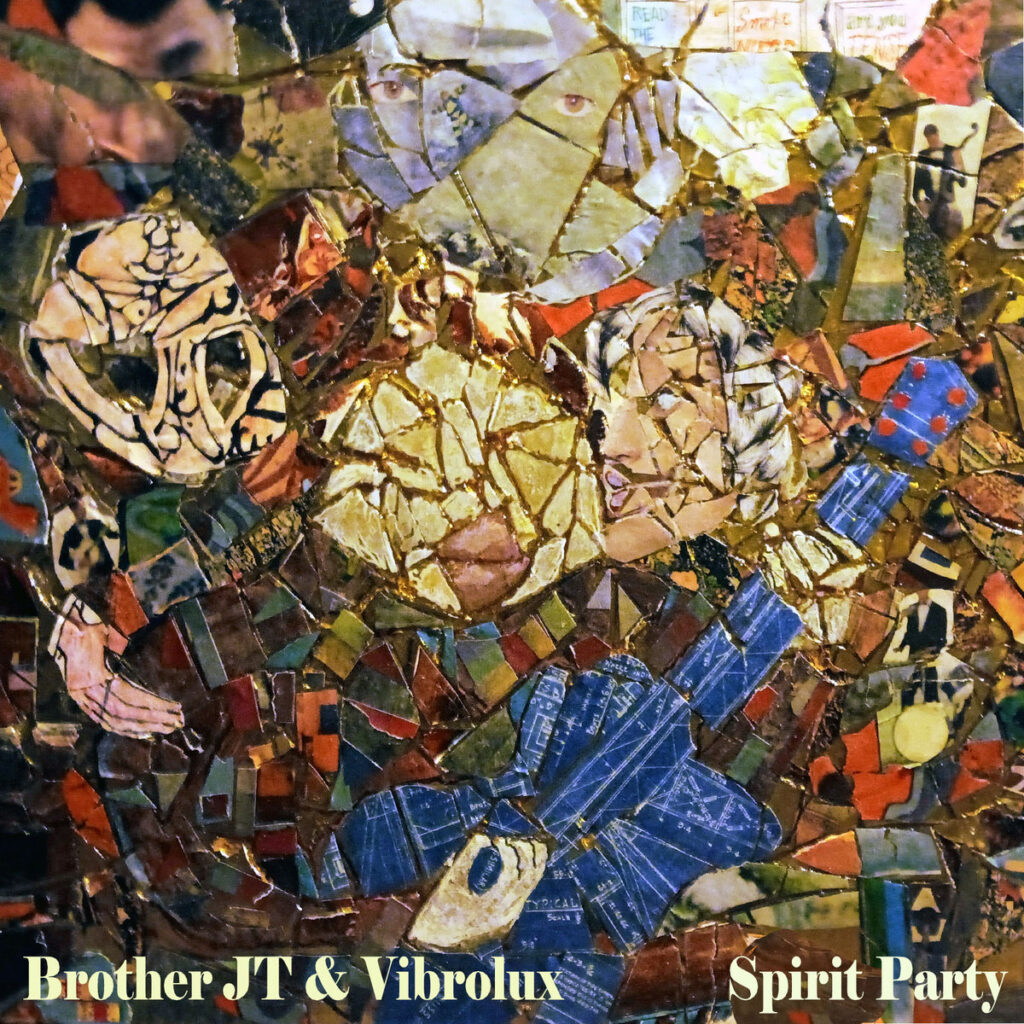
I recently put out a Brother JT/Vibrolux reunion album, ‘Spirit Party,’ which we did remotely, sending each other files by email. It’s available on Bandcamp, Spotify, the Brother JT website, etc.
What about your solo project, Brother JT3?
I started adding “3” to the Brother JT name to denote when the recordings featured a band versus solo records. We had 4 albums on Drag City under that name, I think. The last few that featured bands have just been under Brother JT on Thrill Jockey.
Some people know me mostly for The Original Sins, which was from ’87 to ’99, maybe 10 albums, but I’ve been doing Brother JT from 1992 to now, and closer to 25 albums, so I consider it my most substantial effort. And they’re probably the same songs I’d be doing with The Sins if we’d stayed together anyway.
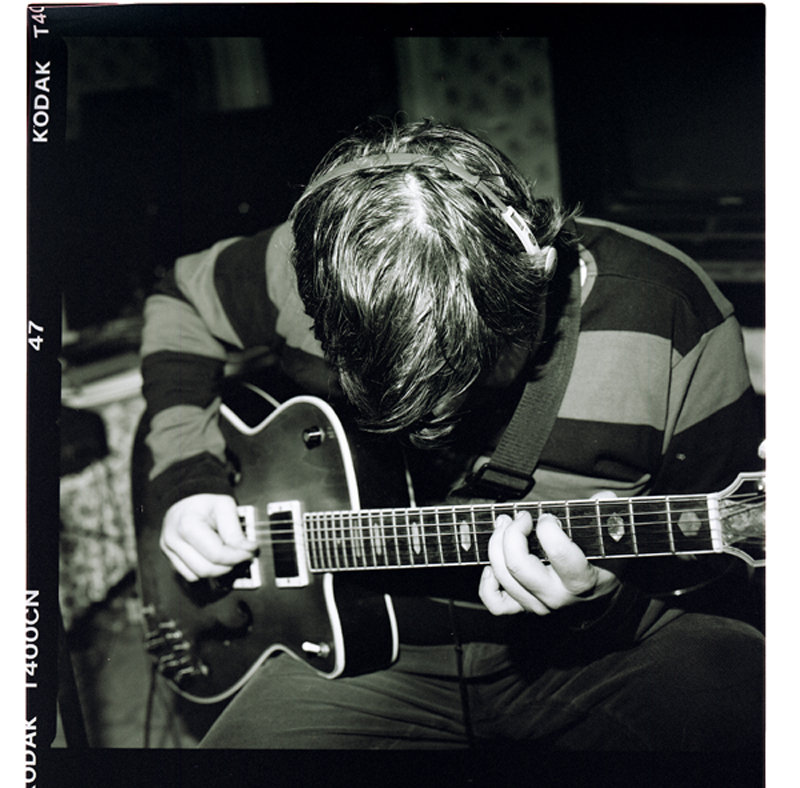
Did I miss something out that you would like to mention?
Since the pandemic, I’ve been doing crudely animated videos just as a hobby. They can be seen on the Brother JT62 Instagram and my Facebook page, as well as www.brotherjt.com and YouTube. Hopefully, I’m getting better at it slowly, but it has been a way to expand on the music a bit and serve as another outlet creatively.
What’s next on the horizon for you?
No real plans, just trying to make what I can out of what comes my way.
Looking back, what was the highlight of your time in the band? Which songs are you most proud of? Where and when was your most memorable gig?
Considering what a timid loner I was as a kid, I was surprised to have gotten the small distance I did in music. The highlight was all the people I met along the way that I learned things from—some not so pleasant things, some wonderful things. If I entertained a few of the people I played to all those nights, then all the slog of practicing, driving, sleeping on floors, etc., was worth it. It’s the exchange of energy that matters.
There’s a collection of songs I wrote about 10 years ago that never came out that I think are my best. They came out fully formed, words and music, almost like I had very little conscious involvement. I’ve let them sit around because I knew I’d do them better justice with the passage of time. I hope they can have their day in the sun someday.
About memorable shows, there was a weeknight I played as Brother JT at the Funhouse, maybe 2006. For lack of anything else available, I took a couple of mushrooms beforehand (I generally prefer “paper products,” far more predictable dosage). You can never tell with mushrooms, and I thought maybe I took too much. The bar was nearly empty, a situation that would usually get me down, but as soon as I started playing, I knew it was alright. I let go of whatever apprehension I had and just played purely, as if I was playing just for myself or God or something. Actually, it felt like someone else was playing guitar. Everything seemed easy, natural, and I didn’t care if no one clapped at the end because I had played the song to my full potential, and it gave me no small amount of joy. Very good night. I try to shoot for that kind of performance as much as I can.
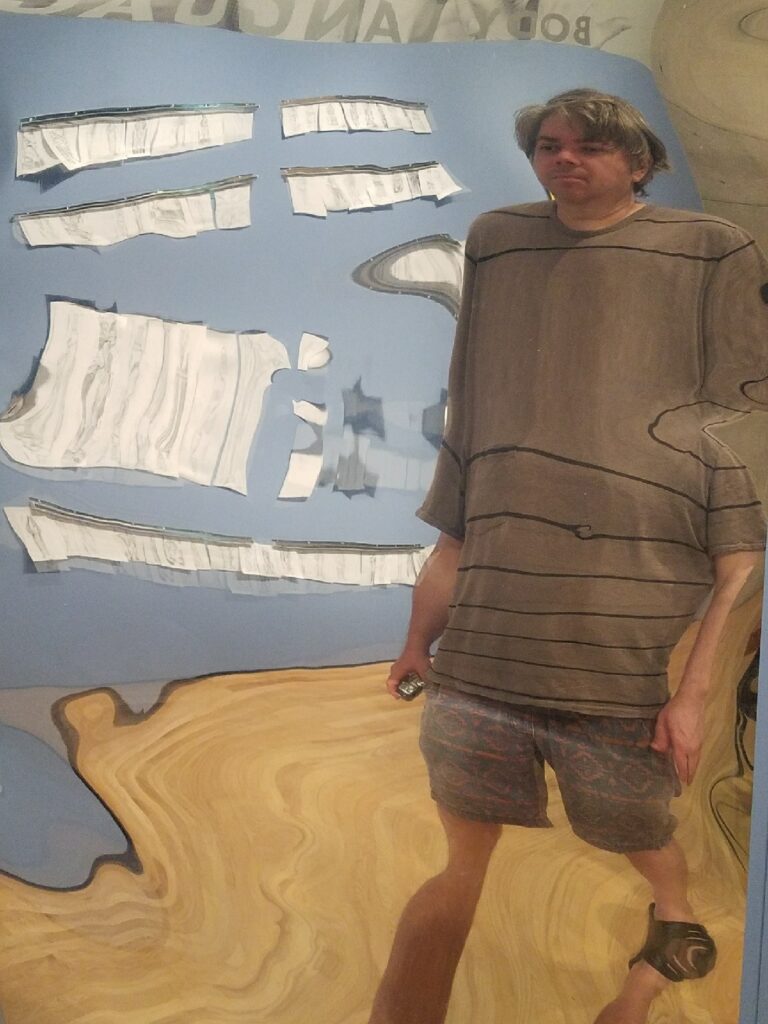
Thank you for taking your time. The last word is yours.
Thanks for taking an interest.
Klemen Breznikar
Brother JT Official Website / Facebook / Instagram / Bandcamp

